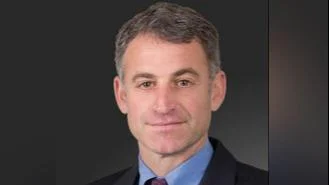Howard B. Chrisman, MD President and CEO at Northwestern Medicine | Official website
Howard B. Chrisman, MD President and CEO at Northwestern Medicine | Official website
Northwestern Medicine has performed the first known robotic double-lung transplant in Illinois, introducing a minimally invasive surgical option for select patients. The procedure was conducted at the Northwestern Medicine Canning Thoracic Institute using the da Vinci Xi robotic system, which enables surgeons to operate through small incisions rather than opening the chest with traditional methods.
Ankit Bharat, MD, chief of thoracic surgery and director of the Canning Thoracic Institute, explained the significance of this approach. "A conventional lung transplant, where we cut through the breastbone and ultimately put it back together, is perhaps the most invasive, complex procedure performed at any hospital. We must open the chest like the hood of a car, so we have full access to the engine (lungs). A robotic approach allows us to dramatically reduce the invasiveness of the procedure, and we hope it will cut down on the recovery time for patients."
The operation was carried out in August on a 63-year-old man from Illinois who had chronic obstructive pulmonary disease (COPD). The patient has since been discharged and is making a strong recovery.
Samuel Kim, MD, thoracic surgeon and director of Robotic Thoracic Surgery at the Canning Thoracic Institute who assisted in performing the procedure with Dr. Bharat, described how robotic surgery offers greater precision. "The precision we achieve with robotic surgery is remarkable. We can perform incredibly complex maneuvers in tight spaces that human hands simply cannot access as effectively," he said. "While more long-term data is still needed, we believe recovery time for these patients will be cut in half because they’ll have less post-operative discomfort. Robotic surgery is rapidly evolving, especially in the field of thoracic surgery, and we believe there’s a clear role for lung transplantation in carefully selected patients."
Dr. Kim also discussed patient selection criteria: "Every lung transplant carries life-or-death stakes with zero margin for error. We carefully select patients where robotics offers clear advantages without compromising safety or speed. I don’t think robotic lung transplant will completely replace conventional lung transplant, but I do think it will become more popular in the future."
Dr. Bharat highlighted previous innovations at Northwestern Medicine: "At the Canning Thoracic Institute, we have pioneered several transformative minimally invasive thoracic procedures such as the robotic lung volume reduction surgery for emphysema, A-PLUS program for lung cancer, robotic SAINT program for advanced stage lung cancer, and the robotic PREMIER program for esophageal cancer, so developing a robotic lung transplant program was quite easy for us."
The Canning Thoracic Institute performed 148 lung transplants in 2024—more than any other center nationwide—and reports having one of the shortest wait times at four days. Since 2014, its Lung Transplant Program has completed over 600 transplants and introduced several innovative approaches such as performing some of America’s first COVID-19-related lung transplants.
Northwestern Memorial Hospital's pulmonology and lung surgery program has been ranked highest in Illinois for 14 consecutive years and currently holds seventh place nationally.
Individuals interested in learning more about Northwestern Medicine's Lung Transplant Program can visit nm.org/pulmonary or contact their referral line.






 Alerts Sign-up
Alerts Sign-up